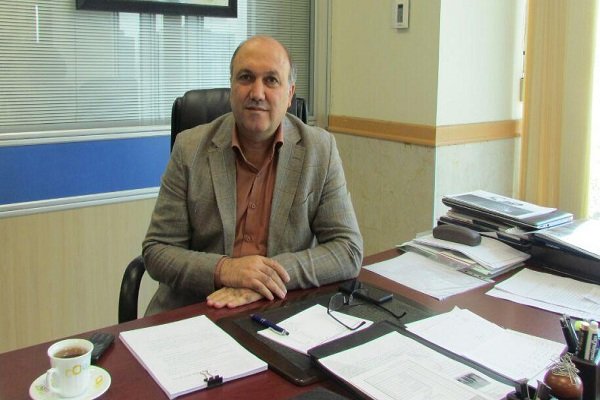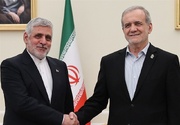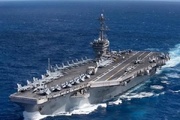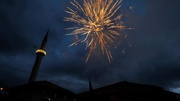The Iranian Railroad Company's Director General for International Affairs Abbas Nazari pointed to France’s eagerness to enter a number of Iran’s railway projects saying “the French have agreed to construct Tehran-Tabriz high-speed train given that Iran has signed into eight million euros of contracts with the European country.”
“France is also conducting studies in four train stations of Iran, including the one in Tehran, in a bid to commercialize them,” he continued.
Referring to registration of Iran’s East-West Corridor in International Union of Railways (UIC), the official said “the world’s Northeast-West Corridor now covers the route of China to Kazakhstan, Russia, north of the Caspian Sea and then to Europe. The corridor has long existed and we need to offer new services and different benefits on the country’s east-west corridor as an alternative to the existing corridor in a bid to attract goods owners.”
“Presently, Iran conducts 5 million tons of international rail transport with Central Asian countries annually, said Nazari stating “although it proves difficult to replace the east-west corridor of Iran with the existing one, we have so far managed to import some of our country’s requirements from China through Sarakhs railways.”
The official said several meetings had been held with China, Kazakhstan and Turkmenistan to reach a specific tariff for rail cooperation; “rail freight imports from China are much more reasonable than sea imports, and cargos arrive in Iran faster than port imports,” he asserted.
“Given that, in winter, the north Russian route causes several problems for owners of goods, efforts need to be made to make sure that Iran’s corridor replaces the northeast one to the west of the world.”
On Astara-astara railway and willingness of Russia to create a north-south rail corridor, Nazari said “government of Azerbaijan Republic agreed to invest 60 million dollars in construction of the Baku-Iran’s Astara railroad and the route is now complete though four cargo terminals are yet pending construction. A pilot train carried a cargo of auto parts from India to Russia through Astara-Astara path slashing the transport time from 45 days to only 19 days even though the consignment was displaced via road from Qazvin to Rasht.
The senior official in Islamic Republic of Iran Railways said Republic of Azerbaijan had agreed to invest a total of 500 million dollars in construction of Rasht-Astara railway in order to complete the rail network from Bandar Abbas to Russia.
At another part of his speech, he said only 35 more kilometers of railroad need to be built to connect the Iranian-Iraqi railways through shalamcheh border; “under an existing MoU, Iran will also undertake construction of a 700-meter bridge as part of the Islamic Republic's assistance to the Iraqi government.”
Abbas Nazari also referred to cooperation between Iran and Italy in the rail sector saying “the volume of railway cooperation and contracts of Iran and Italy reaches 4 billion euros which covers several projects including Qom-Arak high-speed train (250 km/h) worth 1.2 billion euros as well as second line of Tehran-Hamadan railway in addition to establishing a railway testing center and purchasing 500 special passenger wagons.
Referring to Russia's $ 5 billion loan to Iran to invest in infrastructure projects, he said “1.2 million euros of the loan will be devoted to electrification of Gorgan-Inche Burun route.
The official said that Iran's Railways was a member of nine international organizations who interact with other members in the formulation of rules for exchange of goods, wagons and passengers. He also stressed that all aspects of Iran’s railway industry, including lines, wagons, and substructures, complied with international standards defined by the UIC.
“International Union of Railways (UIC), in addition to defining standards, is also active in holding conferences, international and educational meetings, training sessions on line maintenance, training of modern and complex railway industry technologies and signaling,” said the official adding “during 14 years of its activities, the Organization for International Affairs at the Islamic Republic of Iran Railways has increased communications with international communities so that Iran is now a member of UIC board of directors.
UIC has 240 members and 6 regional offices with Iran being the manager of the Middle East branch who plays a part in making international decisions made by the International Union of Railways.
He described Iran Rail as the country with the most standard railway, station and fleet in the region concluding “the achievement has been made through interaction and communication with international organizations.”
HA/4044706

























Your Comment